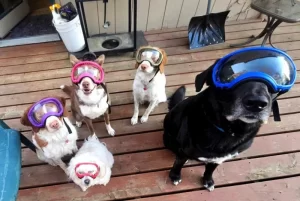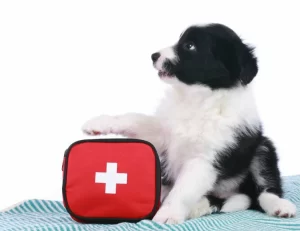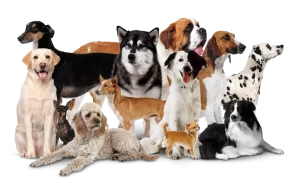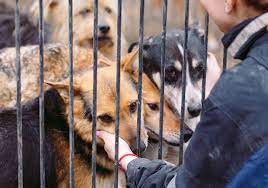As a devoted pet parent, there’s nothing more concerning than seeing your furry friend vomit. While it’s not uncommon for dogs to occasionally throw up, it’s essential to understand that vomiting can be a sign of an underlying health issue.
One way to gain insight into your dog’s health is by examining the characteristics of their vomit. In this article, we will explore the different types of vomit in dogs and what they might indicate. Remember, if you’re ever in doubt about your dog’s well-being, consulting with a veterinarian is always the best course of action.
Table of Contents
Toggle1. Food-Related Vomiting
One of the most common types of vomit in dogs is food-related. If your canine companion has recently consumed something that doesn’t agree with their stomach, it’s likely that they’ll vomit shortly after.
The vomit may contain undigested food particles and may have a strong odor. In most cases, this type of vomiting is a temporary issue and can be resolved by allowing your dog’s digestive system to rest and providing them with bland, easily digestible food.
2. Bilious Vomiting
Have you ever noticed your dog throwing up yellowish or greenish fluid early in the morning or on an empty stomach? This is known as bilious vomiting and is caused by an accumulation of bile in the stomach. Bilious vomit often appears frothy or foamy and may be accompanied by a slight sour smell.
While occasional bilious vomiting may not be cause for concern, recurrent episodes could indicate an underlying issue such as gastrointestinal problems or feeding schedules that are not optimal for your dog’s needs. It’s advisable to consult your vet for a proper diagnosis and guidance.
3. Clear or White Foam Vomiting
If your dog is vomiting clear or white foam, it could be a sign of excess mucus in their stomach. This type of vomiting is often seen in dogs with an irritated or inflamed stomach lining. Causes for this can range from dietary indiscretion to infections or certain medical conditions.
If your dog’s vomiting persists or is accompanied by other concerning symptoms like diarrhea or lethargy, seeking veterinary attention is crucial for a proper diagnosis and appropriate treatment.
4. Foreign Object Induced Vomiting
Dogs are curious creatures, and sometimes their exploration leads them to ingest objects they shouldn’t. If your dog has swallowed a foreign object, they may vomit as their body attempts to expel it. The vomit may contain food, bile, and possibly remnants of the foreign object.
Foreign object-induced vomiting can be dangerous, especially if the object becomes lodged in the digestive tract. If you suspect your dog has swallowed something they shouldn’t have, contact your veterinarian immediately to prevent complications.
5. Bloody or Coffee Ground Vomiting
Finding blood or a substance resembling coffee grounds in your dog’s vomit is undoubtedly alarming. This can be an indication of bleeding in the gastrointestinal tract, which requires urgent medical attention.
The causes of this type of vomiting can vary, ranging from stomach ulcers and ingestion of toxic substances to more serious conditions like gastrointestinal tumors. Do not delay in seeking immediate veterinary care if you observe these alarming signs in your dog’s vomit.
6. Foul-Smelling Vomiting
If your dog’s vomit has an unusually foul odor, it could be a sign of a gastrointestinal infection or the presence of harmful bacteria in their stomach. Foul-smelling vomit may also indicate the ingestion of spoiled or rotten food.
It’s important to monitor your dog closely if you notice this type of vomiting and seek veterinary care to determine the underlying cause and appropriate treatment.
7. Frothy or Bubbly Vomiting
Vomit that appears foamy or bubbly could be a result of excessive gas in the stomach. This can occur due to a rapid consumption of food, eating too fast, or swallowing air during the process.
While occasional frothy vomiting may not be a cause for concern, if it becomes a recurring issue or is accompanied by other symptoms like bloating or discomfort, it’s advisable to consult with your veterinarian to rule out any underlying digestive problems.
8. Projectile Vomiting
Projectile vomiting in dogs refers to forceful and sudden expulsion of stomach contents. It often shoots out at a distance, indicating a significant pressure build-up in the digestive system.
This type of vomiting can be a sign of an obstruction, such as a blockage in the esophagus or stomach. It’s crucial to seek immediate veterinary attention if your dog experiences projectile vomiting, as it can be a medical emergency requiring prompt intervention.
9. Vomiting with Undigested Material
If you notice undigested food or recognizable items in your dog’s vomit, it could suggest a problem with their digestion or their ability to break down and absorb nutrients properly.
Conditions like pancreatitis, gastrointestinal motility disorders, or dietary intolerances may be responsible for this type of vomiting. Consult your veterinarian for a thorough examination and appropriate management strategies.
10. Chronic or Recurrent Vomiting
Chronic or recurrent vomiting in dogs is a cause for concern and should never be ignored. If your dog vomits frequently, even if it’s in small amounts, it could indicate an underlying health issue that requires attention.
Conditions such as inflammatory bowel disease, liver or kidney disease, or even certain types of cancer can manifest through persistent vomiting. A comprehensive evaluation by a veterinarian is essential to determine the cause and provide appropriate treatment.
Conclusion
Recognizing the different types of vomit in dogs can serve as a valuable tool for understanding their health and well-being. From food-related vomiting to more serious indications like bloody or chronic vomiting, paying attention to the characteristics of your dog’s vomit can help you identify potential problems and seek timely veterinary care.
Remember, as a responsible pet parent, your furry friend’s health should always be a top priority, and consulting with a veterinarian is crucial for accurate diagnosis and proper management.

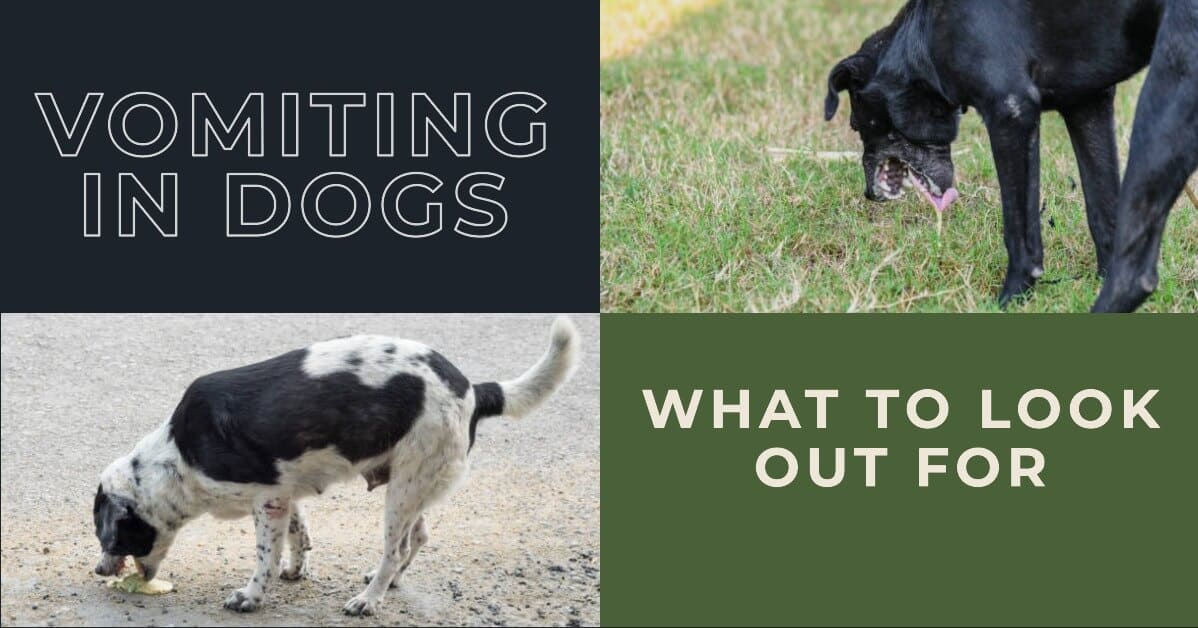

![The Ultimate Guide to Road Tripping with Your Dog [2025 Update]](https://bellabeanupdate.com/wp-content/uploads/2025/05/pexels-photo-1143369-300x209.jpeg)

